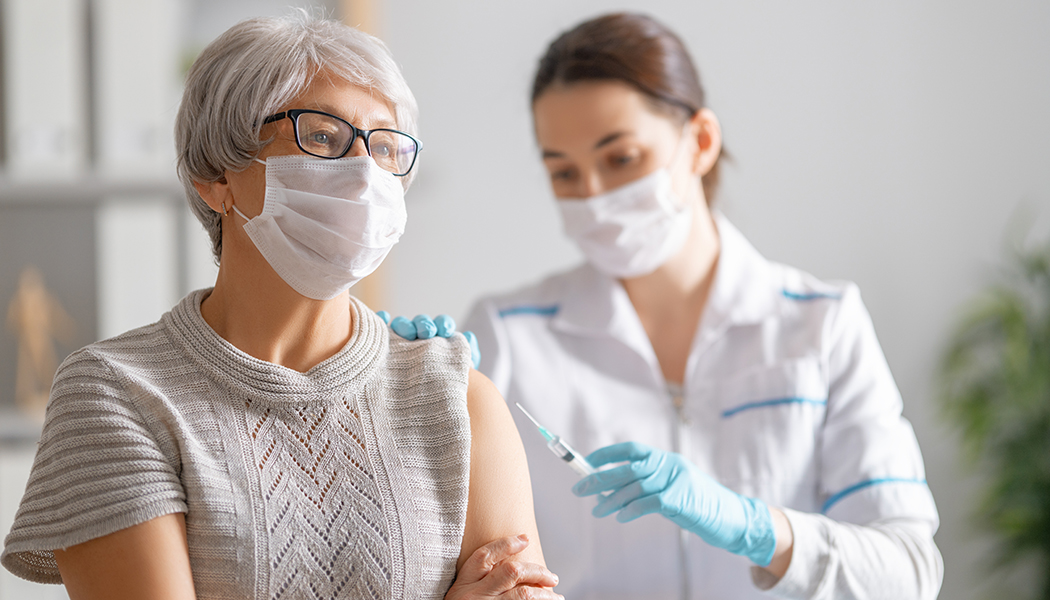3 Things to Know Before Getting the Covid-19 Vaccine
The nationwide Covid-19 vaccine rollout has vaccinated millions of people, which helps to significantly reduce the number of new cases and protect the people of high risk, including cancer patients, from being infected. A fast vaccination will push the country entering the stage of herd immunity, namely enough population in the US will have gained immune protection against the COVID-19 virus and the infection will no longer be able to spread easily.
Unlike healthy people, cancer patients need to know much more than just the assigned priority tier before getting the vaccine shots, since many of them may have weakened immune systems caused either by cancer or the treatment received. The following 3 tips could help cancer patients to consult with their doctors for receiving the right vaccine at the right time – suitable for their specific medical conditions.
1. Understanding your current treatment
For cancer patients who are receiving treatment, talk to your doctor about the timing of your vaccination. Experts recommend that patients should
- wait for 1 or 2 weeks after a major surgery;
- wait for 3-month after a stem cell transplantation or a CAR T-cell therapy;
- wait until seeing an absolute neutrophil count recovery after an intense chemotherapy.
Other cancer patients or cancer survivors who have no contraindications to vaccination should get the vaccine shots when available because of their higher risks of severe complications caused by the Covid-19 infection.
2. Understanding the types of vaccines
Two vaccines are currently available in the US. The third one is being reviewed by the FDA and is expected to be available very soon. Talk to your doctor about which of the following vaccines you should take based on your current medical condition:
- The Pfizer-BioNTech vaccine: mRNA-based vaccine for people 16 years of age or older; given in 2 doses, 3 weeks apart.
- The Moderna vaccine: mRNA vaccine-based vaccine for people 18 years of age or older; given in 2 doses, 4 weeks apart.
- The Johnson & Johnson vaccine (waiting for FDA approval): adenovirus-based vaccine for 18 years old and older; given in only 1 dose.
3. Understanding the limitations of vaccines
The FDA’s approval for all current vaccines is under the Emergency Use Authorization (EUA), which means certain toxicity issues, especially cancer patient related ones, may not be observed during the clinical trials. Cancer patients should contact their doctors immediately when they experience suspicious side effects after the vaccination.
Many cancer patients are considered immunocompromised individuals, who may have reduced immune responses to the vaccines as their immune systems are weakened. The vaccine may provide lower protective effectiveness to them than to healthy people. After vaccination, cancer patients should continue to diligently practice their personal precautions, including wearing masks, social distancing and hand washing frequently.
Additional Reads You May Enjoy:
Lymphoma is Largely Gone After Covid-19 Infection: demonstrating the Power of the Immune System
3 Important Tips For Immuno-Oncology Drug Treatment
Cancer Research Applied to Develop COVID-19 Treatment Strategies
Stay connected with us! Receive our monthly e-newsletter and blogs featuring stories of inspiration, support resources, cancer prevention tips and more. Sign up here.
Reference:
- Interim Clinical Considerations for Use of mRNA COVID-19 Vaccines Currently Authorized in the United States. https://www.cdc.gov/vaccines/covid-19/
- Oncologists can allay COVID-19 vaccination concerns of patients with cancer, survivors. https://www.healio.com/news/hematology-oncology/20210208/oncologists-can-allay-covid19-vaccination-concerns-of-patients-with-cancer-survivors












